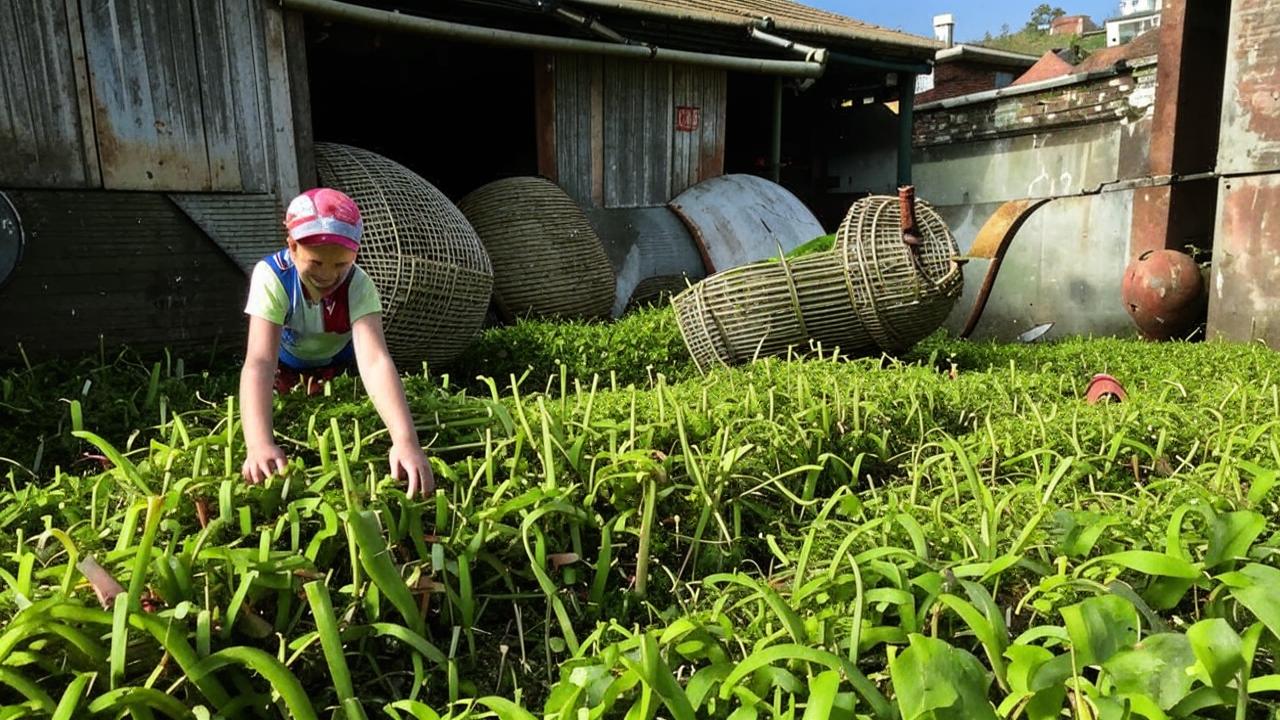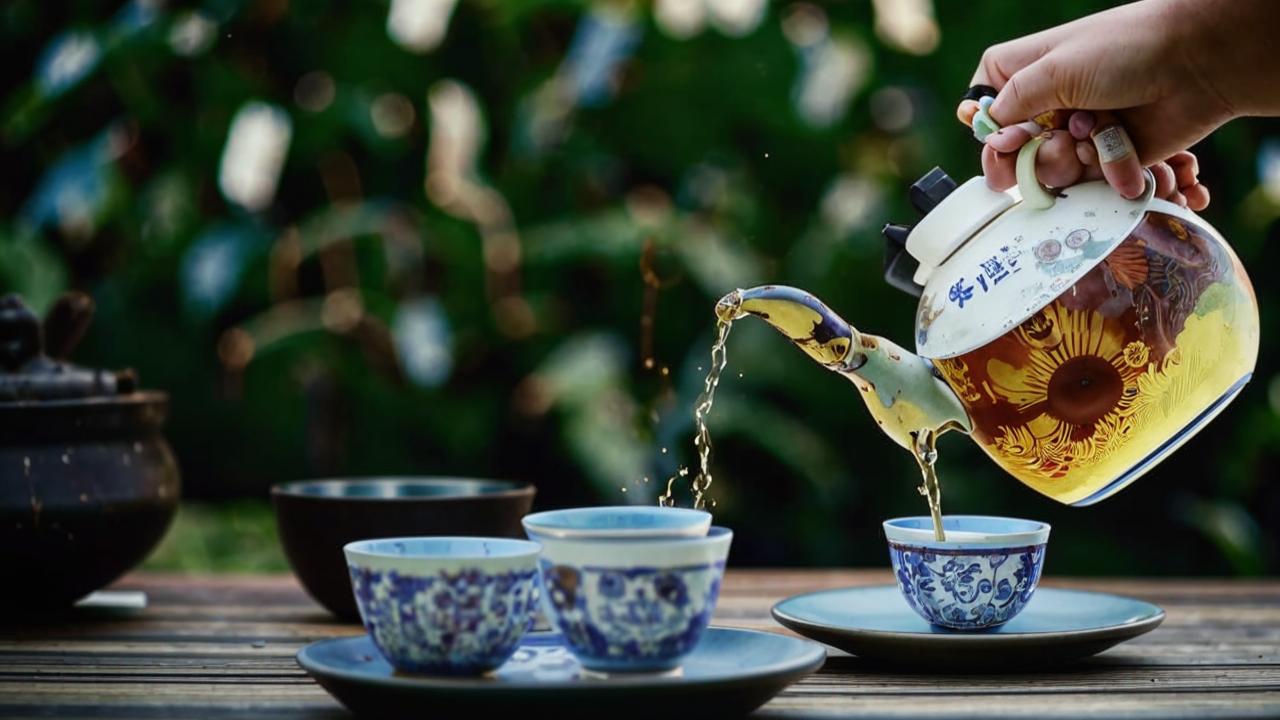Tell the masters of tea.
The modern rhythm of life does not get tired of suggesting: the older we get – the more we should think about our diet. You can endlessly refer to the “bogatyr health”, or you can try something new. For example, give up coffee and replace it with tea. After all, it invigorates not worse.
Hot drink can be found in any corner of the planet. There are people who can not even imagine their day without a cup of tea. It is worth mentioning that this was not always the case, but the times when tea was an unknown curiosity are gone. From the moment of its discovery to our days it has traveled a hard road.

3teas co-founder
There are seven types of tea: green, white, yellow, turquoise (oolong), red (this is what is called black in Russia), puerh and black tea, an extravagant Chinese tea, almost unknown to the Russian consumer.
The differences in the main types are determined by the treatment of the plants after they have been harvested. Basically, it is a different degree of oxidation of the tea leaf during its preparation. Each species has different properties, taste, aroma, a different set of trace elements and essential oils, different caffeine content, etc. The effects are also different.
For vigor I consider black puerh optimal, it has a long and pronounced invigorating effect. Although the word “invigorating” is not enough to describe its effect. Red teas can also be classified as tonic.
It is believed that tea was discovered by the ancestor of Chinese medicine – Emperor Shen Nunu, who was one of the rulers of the most ancient period of Chinese history in the third millennium BC.
master of tea
When it comes to tonic teas, these are Shu Puers and red teas. As for specific varieties, the higher the grade, the more pronounced and interesting the effect. Among Pueres, loose Gong Ting is good, and among red teas – Golden Threads or Pine Needles (the latter is simpler, for every day).
In general, in teas there is a so-called status, the level of its collectability. Many people keep teas of a certain vintage by analogy with wine collecting.
High good teas are not mixed with each other, but when it comes to herbal teas, blends are used quite often. Nowadays, for example, it is fashionable to add saigan dailu, a very strong plant with a pronounced invigorating effect.
How does tea affect the body?
Diana: Red tea is invigorating and warming, it gives a resourceful state. It is good during the working day, and some people prefer to drink it in the morning as a gentle warming up of all body systems. What you will like the taste and what effect will have, of course, it is worth finding out individually, to experiment with this tricky drink – everyone has their own “settings”. Red teas are very pleasant to drink in cold and cloudy weather.
A good and properly brewed black pu’er fills with energy, invigorates in the morning. It is the only tea that can sometimes be drunk on an empty stomach, because of the peculiarities of its manufacture, it is very different from all other types. Puer has a good effect on digestion and cleanses the body. It is believed that when consumed regularly, puerh promotes weight loss – with this, we can rather agree. Softly brewed Shu Puer relieves fatigue at the end of the day and creates a cozy mood.

Important: You shouldn’t drink tea after 8pm if you have no plans to stay awake. It can disrupt your sleep plans.
Can tea be compared to coffee or energy drinks?
Alexei: It can and should be compared. Tea has a very good tonic effect. For example, if you make red tea and black pu’erh stronger, they are very invigorating. It is definitely healthier than energy drinks and longer lasting, milder than coffee. If you start drinking tea, coffee will simply fall away for lack of need.
How do you brew a good tea?
Diane: You need the following as a minimum:
- First, a good tea, the variety depending on preference;
- secondly, good quality water, tasty in itself, it should be free of scale and sediment, and it should make good tea;
- third, dishes – glass, porcelain or ceramic, these materials do not affect the taste of water and tea, respectively. Metal is not recommended – it, like clay, affects the taste of water.

Also the choice of utensils is influenced by the way you prepare tea: Chinese strait or traditional in Russia and Europe infusion. Thus, straining implies a large amount of brew and a small volume of the brewing vessel – with these parameters tea is brewed very quickly, literally in a few seconds, drunk from small bowls and brewed again, and so several times.
Some teas – Sheng Puers or Feng Huang Dan Tsuns – can withstand very many spills. The value of such tea drinking is that each brew differs in flavor and intensity from the previous one: the tea opens, reaches its peak, reaches a plateau, then gradually begins to drink, and then the brewing time should be increased.
- To begin with, get a glassware: through the glass you can see the color of the drink well, and it does not affect the taste of brewed tea.
- Drink only pure teas, without flavorings and additives. Good tea should be tasty in itself. Do not add sugar to your tea.
- Remember that alcohol and nicotine reduce and distort the sensitivity of the receptors that you need to enjoy the taste and aroma of good tea.
- Don’t try to become an advanced tea drinker right away, it’s a long road. Start with simpler types, don’t try to buy something very expensive at once: follow the principle “from simple to complex”.
- Don’t forget that the best tea is still Chinese tea, as it is the birthplace of tea and the greatest variety of tea can also be found there.





